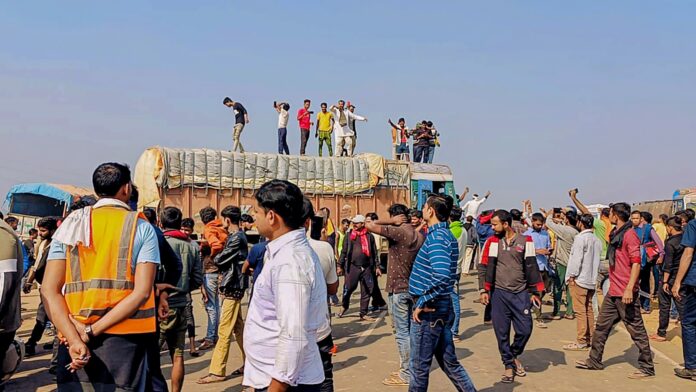The Delhi High Court recently observed that helping an injured person on a public road/highway is the prime duty of everyone and it will be impossible for “good samaritans” to help such people in the absence of legal protection.
The court was hearing a woman’s plea against a 2021 order passed by the Employee Compensation Commissioner which had dismissed her claim for compensation under the Employees Compensation Act. The woman’s husband, a truck driver, had stopped his vehicle on the highway to help a motor vehicle accident victim on the other side of the road/highway. While returning to his parked truck, an untraced motor vehicle being driven at fast speed “negligently and carelessly struck the deceased” and he eventually passed away.
The woman moved the Employees Compensation Commissioner, who held that since the deceased “added peril only when he met with an accident at his own will”, no liability could be fastened on his employer and the insurance company, and the woman’s plea was dismissed. She approached the HC against this.
A single-judge bench of Justice Dharmesh Sharma, in its December 5, 2023, order said, “… learned Commissioner while passing the impugned judgment clearly overlooked the broader or the larger aspect of the whole scenario that helping an injured on a public road/highway is the prime duty of everyone. An individual, who out of sheer generosity helps someone in distress, is a ‘Good Samaritan’ according to the parable in the Gospel of Luke in the Holy Bible… The legislative and judicial axiom should be to protect persons from punishment who out of benevolence provide help to a fellow person in need of aid and to reduce any hesitation bystanders may have about assisting those who need it.”
Justice Sharma further observed that in the absence of legal protection, attributes such as ‘kind-heartedness’, ‘kindness’, ‘empathy’ towards strangers, which makes human beings the “social animals they are”, would be stripped of their very humanity rendering these attributes redundant.

“Thus, in absence of legal protection, it would become impossible for individuals with kind hearts to act out of benevolence, help a person in distress or a victim of a motor vehicle accident,” the HC underscored.
Setting aside the commissioner’s order, the HC remanded the matter back to the Commissioner with directions to assess the quantum of compensation to be payable to the claimants within two months from the date of the HC order, after giving the claimants, the deceased husband’s employer and the insurance company to produce relevant material for consideration.
The HC, after considering the “long intervening time”, directed interim compensation of Rs 5 lakh along with interest 12% p.a. from the date of the accident (June 25, 2018) to be paid to the widow within a month from the date of its order.
After considering provisions of the Motor Vehicles Act and the apex court’s observations on the subject, the HC said the underlying judicial philosophy is that a bystander, who is a witness to the accident or a Good Samaritan, should not be harassed in any manner merely because he or she voluntarily came forward to provide immediate assistance to a victim of motor vehicle accident. It further said the commissioner’s order was not only “unconscionable and patently erroneous in law and facts but also against the whole purpose and object of the Employees Compensation Act”.
The HC derived its view from the “cherished ideals enshrined” under Article 51A of the Constitution which lays down certain fundamental duties, “a constant reminder to every citizen” that they are required to observe “basic norms of good etiquettes, attitudes, and dispositions to promote and further the objectives of establishing a welfare”.





































